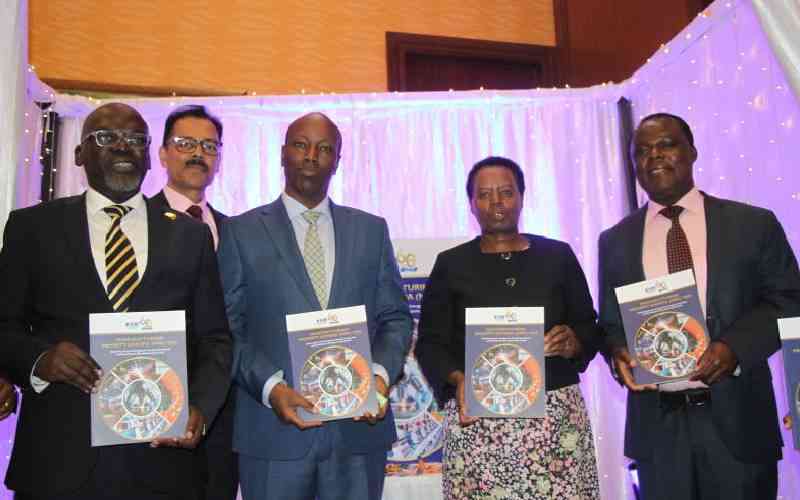Kenya's Vision 2030 spotlighted at Huawei's global ICT sustainability roundtable
Sci & Tech
By
Patrick Vidija
| Mar 05, 2025

Kenya’s Vision 2030 remains a key pillar in President William Ruto’s strategy to drive political, economic, and social agendas.
Principal Secretary in the Ministry of ICT, Eng John Tanui, stated that the vision includes a digital master plan focused on infrastructure, service delivery, skills innovation, and entrepreneurship—aligning with Ruto’s digital superhighway plan.
Speaking at Huawei’s Global ICT Sustainable Roundtable during the ongoing World Mobile Congress in Barcelona, Spain, Tanui emphasised that Vision 2030 positions Kenya as a competitive player in the global digital economy by ensuring quality, accessible, reliable, and secure digital services.
The PS highlighted that through strategic partnerships and initiatives such as Huawei’s Tech4All, the government has successfully rolled out 100,000 km of digital infrastructure, digitised over 20,000 government services, and trained over 20 million Kenyans in digital transformation.
READ MORE
Kenya engages US to safeguard exports amid Trump's tariff war
Sustainability core to future of Africa insurance industry
COMESA unveils plan to transform Africa's leather industry
How Nairobi-Addis deal is fuelling surge in Kenya's electricity imports
Family Bank profit jumps 38pc to Sh3.4b on higher interest income
Industry leaders, managers urged to support employees' ambitions
Money trap: Why many Kenyans struggle to grow wealth
Traders feel pinch of Sudan tea export ban
Smaller lenders lead in cheap loans as costs fall marginally
Auto dealer Caetano banks on Chinese brand to boost locally assembled vehicles
“We have partnered with key players like Huawei to roll out fiber optic infrastructure and establish digital hubs in all ward administrations,” he said.
Under the theme ‘Enabling an Inclusive and Sustainable Digital World,’ the roundtable focused on how global challenges have widened digital divides.
READ: Government's plan to deliver digital economy is gradually taking shape
“In Kenya, we believe no one should be left behind. That’s why Huawei is a strategic partner in upscaling digital skills through initiatives like Tech4All, which we leverage to drive digital inclusion,” said Tanui.
He noted that the initiative’s key focus areas include education, environmental conservation, and rural development.
“With mobile digi-tracks, we have been able to train young people on smartphone functionality, online risks, responsible internet use, and securing online accounts and resources for learning,” he said.
While acknowledging that access and affordability gaps remain, Tanui stressed the importance of digital skills tailored to expand connectivity benefits, particularly for income generation.
His sentiments were echoed by UNESCO’s Senior Education Specialist, Dr Ramon Iriate, who emphasized that while governments promote digital skills, localized content is crucial for meaningful impact and diversification.
ALSO READ: Digital Superhighway pathway to a brighter future for all Kenyans
Dr Iriate noted that digital content should focus on three key elements: addressing people’s needs; equipping individuals with skills for learning, work, and everyday life.
“This will not only promote an inclusive and sustainable global economy but also foster an inclusive and peaceful society,” he said.
He further argued that a complete restructuring of systems is necessary to replace siloed approaches that have hindered collaboration and funding capacity.

